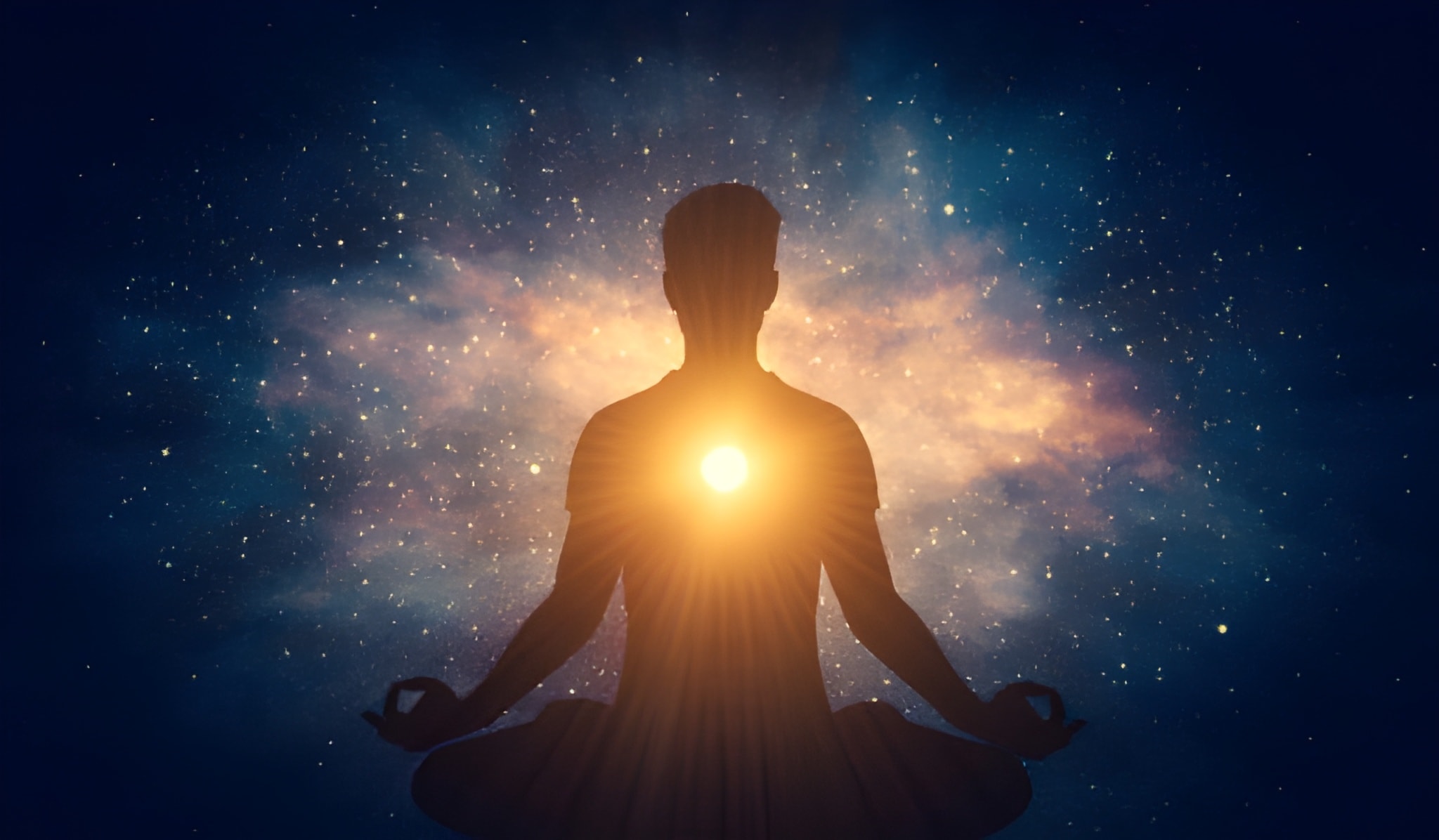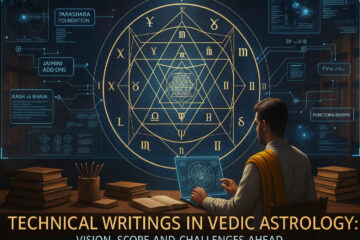Most people approach Jyotish for answers, predictions, timing. But the deeper spiritual lessons of astrology arrive later. At first, you come for clarity. Eventually, you stay for calm. You begin with “What will happen?” and end up sitting with “How do I carry myself through what happens?” That shift — from control to dignity — is the real transformation this science creates.
In the early stage, it’s addictive. You test charts, you line up transits, you watch dashas hit exactly when life events unfold. You see moves in career, health, relationships, location — all mapping so cleanly that it almost feels unreal. The accuracy can be intense enough to unsettle you. The rational mind is not relaxed when reality proves patterned. You get goosebumps because the chart starts acting like an x-ray of time.
But as the spiritual lessons of astrology unfold, you see something your beginner self didn’t expect: knowing is not the same as controlling. You can see a difficult period coming and still be required to live it. You can understand a karmic theme and still have to walk through it. This is where astrology stops being just prediction and becomes spiritual training. It teaches humility, emotional discipline, and surrender without collapse.
Why “Don’t Read Your Own Chart” Is Actually Wisdom About Detachment in Astrology
Classical teaching says: don’t interpret your own chart, and don’t obsess over charts of people you’re emotionally attached to. Almost everyone ignores this rule at first. And then almost everyone understands, painfully, why it exists.
The issue is not that you’ll “see something bad.” The issue is that you’ll fuse with it. You stop treating the chart as data, and you start treating it as identity. Fear takes over analysis. You no longer practice detachment in astrology; you become the storyline. You panic over every Mars transit in the 8th. While, you catastrophize every Saturn aspect to Moon. You stop reading cleanly and start defending your emotional comfort.
It takes maturity to sit with your own 8th house activation and say, “This is transformation, not punishment.” It takes maturity to look at a difficult Venus dasha and say, “Relational lessons, not doom.” When you can do that, you’re practicing emotional discipline in Jyotish instead of emotional projection. Until then, the rule “don’t read your own chart” protects you from yourself.
The Most Powerful Shift: From Control to Alignment
If you study long enough, one realization becomes unshakeable: you do not control outcomes. You participate in them.
This is one of the core spiritual lessons of astrology. Early on, you think, “If I know, I can avoid.” Later, you learn, “If I know, I can prepare.” Those are not the same thing. A chart can show a disruptive Saturn–Rahu period ahead, but it cannot live that period for you. You still have to show up for life, consciously.
And then something beautiful happens. Anxiety drops. Because once you deeply accept that some portions of destiny are fixed (dridha karma) and others are flexible (adridha karma), you stop trying to micromanage the universe. You act fully, but you stop begging reality to obey you. That surrender vs control in astrology is not passive. It’s efficient. You invest effort where effort matters. You stop wasting life force where it doesn’t.
That is calm awareness. You work, pray, rest. And you stop bargaining. This alone can change the way the nervous system experiences stress. The nervous system stops living in constant emergency mode, because you’re no longer demanding total control of the future in order to feel safe.
Failure as a Teacher: How Karma and Free Will Interact
Watching charts over time teaches you that “failure” is often just karmic timing doing its job. You can put in perfect effort and still see something slip through your fingers. You can want a result desperately and still not get it in that dasha. That’s not always because you were “blocked.” Sometimes it’s because that karma is not scheduled to ripen yet.
Here is where karma and free will in Vedic astrology meet in a very honest way. Free will governs how you act, how gracefully you respond, how ethically you move, and how you carry pressure. Karma governs which doors are even available to you in that moment. We don’t like that sentence, but spiritually, it’s liberating. It pulls you out of self-blame. It also pulls you out of self-worship. You’re neither total victim nor total god. You are a participant in a lawful pattern.
That understanding matures you fast. You stop saying, “Life is against me.” You start saying, “Life is shaping me.” That is spiritual maturity through astrology. That’s when Jyotish stops feeding the ego and starts untying it.
The Real Gift: Discipline Without Panic
When you first start studying, you might quietly think, “Astrology will keep me safe.” After some years you realize something more honest: astrology doesn’t always keep you safe. It keeps you awake, responsible, and prepared.
You begin living with disciplined steadiness. You budget during a tough Saturn window, and do health maintenance before a harsh 6th house activation. And, you strengthen trust and communication in a relationship before a volatile Mars transit hits the 7th. You practice damage control in advance, instead of trying to do disaster control in panic.
That shift from panic to preparation is one of the most practical spiritual lessons of astrology. It’s not “everything will be fine.” It’s “I will meet whatever comes with clarity.” That is inner authority and adulthood. That is spiritual detachment that still honors reality.
Important Notes
Should astrologers avoid studying their own chart?
Tradition advises caution because attachment destroys neutrality. When you’re emotionally entangled, you stop seeing patterns and start seeing threats. With enough maturity and detachment in astrology, self-reading becomes possible — but until then, self-reading often produces anxiety instead of wisdom.
What spiritual lesson did astrology ultimately teach?
The deepest lesson is that effort is yours, outcome is not. You act with integrity and presence, but you release the obsession with guarantees. That inner release generates calm awareness. It’s not passive. It’s clean. And it’s aligned. This is one of the core spiritual lessons of astrology that no book can give you — you only get it by living through cycles.
Can knowing a difficult period in advance change it?
Not always externally. Sometimes the event still happens. But internally, absolutely yes. If you know a Saturn–Mars window is coming, you move carefully, you reduce ego reactions, you protect your energy. You still may experience stress — but not collapse. In Jyotish terms, prediction becomes nervous system regulation.
How does astrology evolve from technique into spiritual practice?
In the beginning you’re collecting data and proving rules. Later you’re practicing surrender vs control in astrology. You no longer treat the chart as a vending machine. You treat it as scripture, and you stop demanding, “Will I win?” and start asking, “Will I walk this phase with dignity?” That question alone is spiritual growth.
FAQ
Can astrology actually make someone more detached and peaceful?
Yes — when practiced honestly. Seeing repeat patterns across charts shows you that clinging is useless and panic is optional. You begin to hold life lightly but show up fully. That kind of detachment in astrology is not numbness. It is mature steadiness.
Why do failures often become spiritual turning points?
Because failure is where ego meets limit. You tried, you pushed, and reality still said “Not yet.” That confrontation forces humility, compassion, and perspective. Emotional discipline in Jyotish begins when you stop assuming that life denied you because you’re unworthy, and start understanding timing as a teacher.
Can a chart show who’s likely to become an astrologer?
There are recurring signatures: strong Mercury (analysis and articulation), Ketu (detachment, mystical inquiry), Jupiter (counsel, ethics), activity in the 8th or 12th houses (occult, subtle perception), and a powerful 5th (intuitive intelligence). Those combinations often appear in serious practitioners. But the desire to serve and the willingness to sit with other people’s pain — that part can’t be forced by a placement. It has to ripen.
How can I cultivate the same calm awareness in my own life?
Start with two practices: 1) Act with full sincerity where you clearly have agency. 2) Stop bargaining with outcomes you cannot control. This is the living heart of karma and free will in Vedic astrology. Over time, this practice replaces panic with steadiness. You don’t become careless — you become anchored.
Living With the Spiritual Lessons of Astrology
The spiritual lessons of astrology are not about escaping your life. They’re about inhabiting it without panic. Jyotish, at its highest level, is not about “How do I avoid pain?” It’s about “How do I walk through this phase awake?” When you reach that orientation, you’ve already stepped into the quiet authority this tradition was built to cultivate.
If you’re serious about studying real Jyotish as a path of awareness — not fear — stay with Much Needed Astro. The goal here is not to sell prediction fantasies. It’s to train calm, timing, self-respect, and spiritual steadiness in real life.




